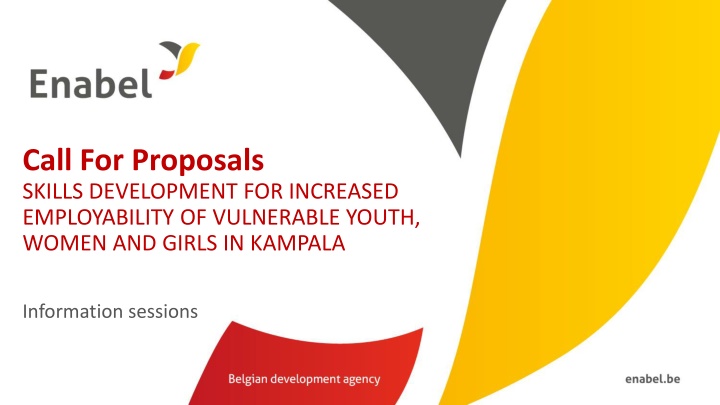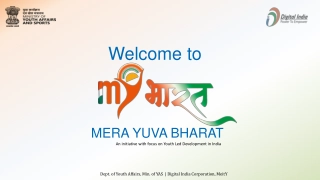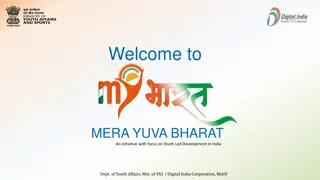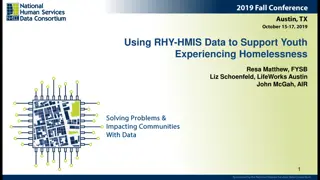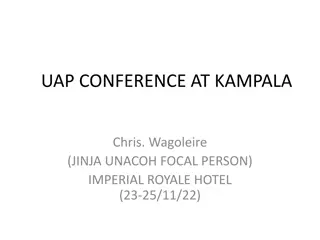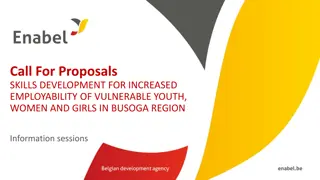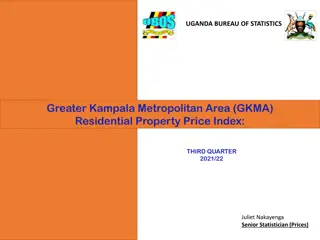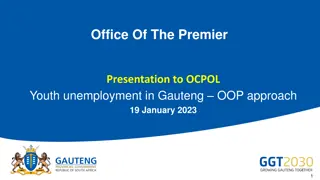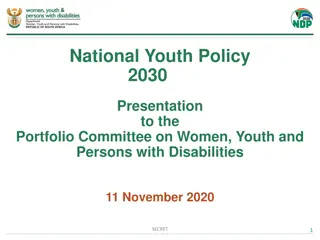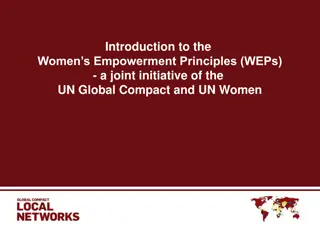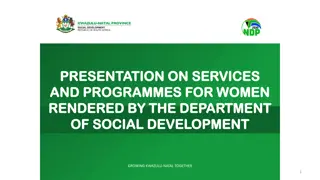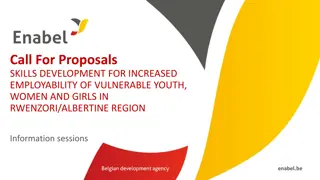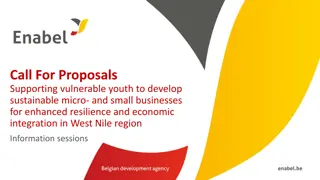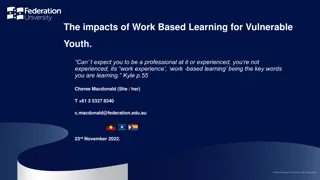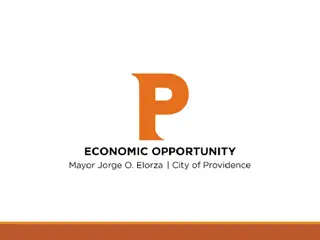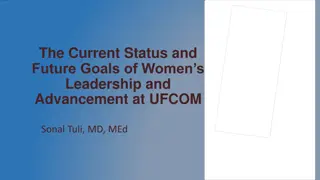Skills Development for Vulnerable Youth and Women in Kampala
This call for proposals aims to enhance the employability of vulnerable youth, women, and girls in Kampala through skills development programs. Enabel, the Belgian development agency, focuses on empowering young people and women in Uganda for economic independence and sustainable development in various areas including employment, entrepreneurship, education, and health. The proposed interventions target improved employability, green job opportunities, and self-employment prospects, with a special emphasis on agriculture and the green economy.
Download Presentation

Please find below an Image/Link to download the presentation.
The content on the website is provided AS IS for your information and personal use only. It may not be sold, licensed, or shared on other websites without obtaining consent from the author.If you encounter any issues during the download, it is possible that the publisher has removed the file from their server.
You are allowed to download the files provided on this website for personal or commercial use, subject to the condition that they are used lawfully. All files are the property of their respective owners.
The content on the website is provided AS IS for your information and personal use only. It may not be sold, licensed, or shared on other websites without obtaining consent from the author.
E N D
Presentation Transcript
Call For Proposals SKILLS DEVELOPMENT FOR INCREASED EMPLOYABILITY OF VULNERABLE YOUTH, WOMEN AND GIRLS IN KAMPALA Information sessions
Presentation outline 1. Introduction to WeWork and the Call for Proposals 2. Objectives of the call 3. Admissibility criteria a. Actors b. Actions c. Costs 4. Concept note application form 5. Application and selection procedure
1. Introduction Enabel, the Belgian development Agency Vision: Young people and women in Uganda develop into active, economically independent citizens in a sustainable society that respects human rights and ensures quality basic services. Focus areas: Employability Employment & Entrepreneurship Education Health Skills development that offers the prospect of decent and green jobs Skilled people find decent and green jobs or start a successful business Quality lower secondary education Training of health personnel & improved capacity of health centres and hospitals
1. Cn't Introduction Interventions are funded by: Belgian government Employability and Employment: Green and decent jobs for youth WeWork Education: WeLearn Health: WeCare and WeTrain4Health and the EU Employability and Employment: Green and decent jobs for youth WeWork Business: SB4U and SBHR Gender: G4DU
1. WeWork: Green and Decent Jobs for Youth Results domain 1 Results domain 2 Results domain 3 Improved employability of young people (especially through skilling and employment services Increased gainful self- employment opportunities through entrepreneurship Increased productivity & sustainability of existing businesses women) Focus on agriculture and the green economy
Call for Proposals Guidelines, annexes, clarifications (Q&A) and all other communication: www.enabel.be/grants Call reference number: UGA22003-10008 Call Title: Skills development for increased employability of vulnerable youth, refugees, women and girls in Kampala metropolitan area Procedure: 2 phased : (1) Concept note stage, (2) proposal stage
2. Call Objectives General objective Improve livelihoods of 2000 vulnerable youth through enhanced access to quality, demand-driven skills development and employment support services Specific objectives The provision of skills development is more equitable, qualitative, innovative, and labour market-driven for increased employment opportunities
2. Call Objectives 2 phased procedure - Concept note stage - Proposal stage
2. SDF basket Quality non-formal skills development Skill gaps identified through livelihood and labour market analysis Meaningful involvement of the (local) private sector in design, implementation and/or assessment of trainings Holistic approach to skills development by integrating career guidance, 21stcentury skills development, work- based learning, social inclusion strategies Intensive and innovative post-training employment support services
2. Call volume and grant amounts Total call volume is 2,000,000 EUR Lot 1: Agriculture: indicative allocation: 1,000,000 EUR Lot 2: Green economy: indicative allocation: 1,000,000 EUR Grant applications must fall between minimum 150,000 and maximum 500,000 Euro Reasonable and efficient unit cost, to take into account holistic approach + intensive post training support
2. Different lots CfP lots 1. Inclusive/accessible 2. Conducive economical and technical conditions 3. Environmental impact Lot 1: Agriculture Coffee Cocoa Apiary Lot 2: green economy Sustainable tourism Renewable energy Sustainable forestry
3. Admissibility criteria A) The actors: Eligible applicants B) The actions: Admissible actions for grants C) The costs: Acceptable types of costs that may be included in grants
3a. The actors: lead applicant Legal entity Be a private not for profit entity or foundation; Be established or represented in Uganda; National or international NGO, Civil Society or Community-Based Organization, Foundation, Business Membership organisation or a non-profit business development service provider with demonstrated experience in managing quality skills development initiatives and economic empowerment of vulnerable youth and women in the selected value chains Demonstrated relevant work experience at least the past 3 years Active Bank Account for the past 12 months In-house financial management capacity
3a. The actors: lead applicant Exclusion grounds: Annex VII grant agreement Applicant s declaration in application form completed and signed (Annex A guidelines) Supporting documents (upon preselection 2ndstage): Criminal record clearances from Interpol NSSF clearance certificate Tax clearance certificate
3a. The actors: the applicant and co- applicant(s) The applicant must mandatorily form a partnership and act with at least one and maximum two co-applicants The partnership between Lead and co-applicants is to optimize cumulation of complementary expertise. The selected applicant becomes the contracting-beneficiary and is the main point of contact for the contracting authority. It shall represent its co-applicant and act in their name. It shall design and coordinate implementation of the action. The co-applicant shall participate in the implementation of the action and the costs that they incur shall be eligible in the same way as those incurred by the lead applicant.
3a. The actors: co-applicants Legal entity Be a public entity or private not for profit or legal entity of private law for which profit maximization is not the priority objective Established or represented in Uganda Be any of the following types of organization: Accredited public or private non-profit technical and/or vocational skills training provider Business Membership Organisation/Association Non-profit Business Development Services (BDS) provider A cooperative or social enterprise for which profit maximization is not the priority objective; NGO, Civil Society or Community-Based Organization, Foundation Have 3 years demonstrated work experience in participating in quality skills development and/or employment promotion initiatives in the targeted region. Be registered with relevant authorities and comply with Ugandan legal regulations Have an operational governance structure and an active bank account for the past 12 months
3a. The actors: co-applicants Private law for which profit maximization is not the priority objective, conditions: (1) Social objectives (ie. aimed at improving human, societal and environmental wellbeing) serve the primary purpose of the entity (2) Generating revenue/profits is not an objective in itself, but a means to achieve social goals; hence the majority of revenue/profits are reinvested back into the company/entity for social purpose OR into actions for social purpose ! This has to be demonstrated through the articles of association, any other legally binding documentation (board/shareholder resolutions) and/or financial statements for the past 3 years. ! This considers the entity s constitution, any ad hoc resolution merely related to what would happen with potential funding from Enabel is not sufficient ! Double check if this can be sufficiently demonstrated to avoid ineligibility of the application
3a. The actors Summary types Organisation type National or international Non-Governmental Organizations (NGOs), Foundations, or Community-Based Organizations (CBOs) Lead applicant Co-applicant Yes Yes Public vocational and/or technical training institutions No Yes Private (not-for-profit) vocational and/or technical training institutions No Yes Non-profit Business Development Services (BDS) provider Yes Yes Business Membership Organizations or associations Yes Yes Cooperatives or social enterprises for which profit maximization is not the priority objective No Yes
3a. The actors Physical presence Selected applicants are required to be based in the targeted subregions (= eligible districts!) during implementation of the action and hence applicants are to demonstrate in their application how they will ensure their physical presence either through: an existing office of the applicant; An existing office any co-applicant; an office space to be set-up clear plan to be elaborated in application form!
3a. The actors: Associates Participate actively in the action but are not eligible for grants and only qualify to receive daily allowances and travelling expenses. To be specified in part B of the application form. They need not to sign the mandate in proposal stage.
3a. The actors: Contractors These are contractors for services, works and equipment. These must be sourced through a procurement process using relevant procedures i.e. PPDA (public procurement law) for public entities and annex VIII of the Grant Agreement for private entities
3b. The actions 1. Duration 2. Location 3. Target beneficiaries 4. Priority sectors and themes 5. Type of action and eligible activities
3b. The actions: Duration - Action/GA : minimum 18 to maximum 24 months - Training programmes: minimum 6 to maximum 9 months, including minimum 30% WBL - Minimum 6 months post-training employment support for successful graduates
3b. The actions: Location The actions must be implemented within Uganda in one or more of the following districts: Kampala Mukono Wakiso The actions may not be implemented in other districts Target groups/youth must reside in the target districts Majority of activities take place in target districts
3b. The actions: Target beneficiaries Vulnerable populations residing in the eligible districts (different vulnerability categories, to be demonstrated in application) At least 80% youth between the ages of 15 and 35 years At least 50% women and girls
3b. The actions: Priority sectors 1. Agriculture 2. Green economy Trainings in small livestock (poultry and piggery) and other sectors or occupations not listed may also be eligible if applicants can clearly demonstrate and substantiate the relevance of the proposed trainings to the local labour market and employment opportunities for the specific target group(s).
3b. The actions: Priority value chains Agriculture: Apiary value chain; Coffee and cocoa value chains Green economy: Sustainable tourism and hospitality value chains; Sustainable forestry value chains (sustainable timber and non-timber, including agro-forestry); Renewable energy value chain Transversal: integration of organic and solid waste management can be considered for all targeted value chains -> Maximum 5 trades
3b. The actions: Priority value chains Green economy Sustainable tourism and hospitality value chains: ! takes full account of its current and future economic, social and environmental impacts, addressing the 3Ps (People, Planet, Profit) = sustainable microbusiness development in leisure and business tourism, while contributing to the conservation of the natural environment and cultural heritage, and inclusion of the local community Sustainable forestry value chains: non-timber forest product (NTFP) includes all biological materials other than timber which are extracted from forests for human use. These include foods, medicines, spices, essential oils, resins, gums, latexes, tannins, dyes, ornamental plants, wildlife (products and live animals), fuelwood and raw materials, notably rattan, bamboo, small wood and fibres
3b. The actions: Priority Themes To integrate: Environmental conservation or skills for the green economy Gender roles and reproductive health awareness Entrepreneurial skills Digital literacy or skills for the digital economy Financial literacy Other soft skills for enhanced employability: Work- readiness, conflict management, behavior/attitude skills, etc
3b. The actions: mandatory activities Labour market analysis in order to identify and engage with private sector entities and establish job profiles defining the skills required for potential job opportunities Outreach and awareness or sensitization strategies Social inclusion strategies Non-formal, short-term skills training programmes in the targeted sectors with a duration of minimum 6 to maximum 9 months Assessment and certification, adhering to national standards for non- formal training (Directorate of Industrial Training) Integration of Occupational Health and Safety standards and measures (including materials + protective wear) Integration of soft skills training and entrepreneurship skills training
3b. The actions: mandatory activities Involvement of private sector in design, implementation and/or assessment of trainings and minimum 30% of the training duration allocated to Work-Based Learning Engagement of private sector role models and expertise in mentoring and training Provision of start-up kits and/or micro business grants, tailored to specific business needs or business plans developed by successful graduates and/or groups opting for self-employment 6 months extensive and innovative post-training employment support services
3b. The actions: Admissible activities See guidelines, non-exhaustive Provision of start-up kits, tailored to specific business needs or business plans developed by targeted youth Maximum 15% of the budget to provide a strategy on how the kits will effectively promote sustainable business development and not distort the local ecosystem and market Sub-granting (micro business grants) to vulnerable youth supported under the action to start/develop sustainable micro or small businesses are allowed with application of the specific conditions and restrictions
3b. The actions: Sub-grants to sub- beneficiaries Optional not mandatory In 2nd/proposal stage need to elaborate: 1. The description of the objectives and results to be achieved with these sub- grants, the fundamental principles, the key concepts, the mechanisms, the actors and their role in the management process; 2. The criteria and modalities for the allocation of grants, accessibility conditions sub-beneficiaries, conditions for the admissibility of sub-projects, eligibility conditions for activities, costs and expenses; 3. The procedures for examining and awarding applications; 4. The maximum amount that can be allocated by sub-beneficiary; 5. The terms of contractualization with the sub-beneficiary; 6. The procedures and modalities for disbursing resources; 7. The procedures and modalities for technical and financial monitoring; 8. The procedures and modalities of control.
3b. The actions: Sub-grants to sub- beneficiaries Micro business grants conditions: The maximum amount for the sub-grants under this category is EUR 250 per supported youth/youth owned business; Maximum 20% of supported youth/youth-owned businesses under the action can be eligible for a micro business grant; To be eligible for a micro business grant, supported youth must have successfully completed the training organized under the action, be certified and present a sound and viable business plan/model; Approval of micro business grants for supported youth/youth-owned businesses will be done by a selection committee which is to include representatives of Enabel, and by applying different evaluation criteria including (but not limited to) the viability of the business plan/model, vision/sound projections, financial need and relevance, technical and economic feasibility, experience and motivation of the applicant, etc.
3b. The actions: Sub-grants to sub- beneficiaries Micro business grants conditions (2) : Types of activities eligible for micro business grants include purchase of equipment, raw materials and inventory, marketing and advertising activities, or start-up related costs for newly developed businesses; The following costs are ineligible for sub-granting: non-business-related costs (e.g. personal expenses or assets) and repayment of existing debts or loans. Payment modalities cannot include any transfer in cash.
3b. The actions: Other admissible actions Training, studies, workshops, etc Training materials Promotion of social or gender inclusion (e.g., transport arrangements, facilities and procedures that constitute safe learning and work environments, day-care services, counselling or psychosocial support, ) Capacity building local partners (Pre-training) career guidance, coaching Toolkits for WBL Job fairs, networking or matchmaking activities
3b. Number of applications The applicant may not submit more than one (1) application per lot under this Call for Proposals. The applicant may not be awarded more than one (1) Grant Agreement per lot under this Call for Proposals. The applicant may not be at the same time a co-applicant in another application A co-applicant may not be awarded more than one (1) Grant Agreement under this Call for Proposals
Questions? sdf.grants@enabel.be
3c. Admissible/ Ineligible costs Admissible / Eligible Costs: Costs that Enabel can subsidize under any Grant Agreement 1) Direct costs Operational Costs Management Costs (Direct Administration Costs). 2) Indirect Costs: Structure Costs (Indirect Administration Costs) Two Types: Directs Costs Indirect Costs
3c. Admissible/ Eligible costs ii) Management Costs: Direct costs Administration costs directly attributed to the implementation of the actions. This comprise the costs of management, monitoring, equipment, facilities and other costs directly related to the core activity. Examples: IT/Computer equipment(Laptops, printers, projectors, Camera etc.) Furniture and fittings Audit & Accounting fees Salary of program staff + other direct staff Etc. i) Operational Costs Activity costs necessary for achieving the results of the action. This comprises the costs of the core activities to be implemented. Examples: Training materials Food for trainees Transport costs for trainees or attend training workshop Training fees Etc.
3c. Admissible/Ineligible costs Indirect Costs: Structure Costs: Administration costs not directly attributed to the project, but are necessary for the implementation of the actions. Max 7% of operational costs, and to be verified. Examples: Office rental Utilities: electricity, water, etc. for project office Salary of the Executive Director or + other support staff Office telecommunication cost Etc.
3c. Admissible/Eligible costs Reserve for contingencies: The budget may include a contingency reserve up to a maximum of 5% of the estimated eligible direct costs. It may only be used with the prior written authorization of Enabel.
3c. Ineligible costs Subcontracting by means of service or consultancy contracts to personnel members, Board members or General Assembly members of the organisation subsidized Any sub-letting to oneself Purchases of land or buildings; Compensation for damage falling under the civil liability of the organisation Employment termination compensation for the term of notice not performed Purchase of alcoholic beverages, tobacco and derived products thereof Accounting entries not leading to payments Provisions for liabilities and charges, losses, debts or possible future debts Debts and debit interests Doubtful debts Currency exchange losses Loans to third parties Guarantees and securities; Costs already financed by another grant Invoices made out by other organisations for goods and services already subsidized
3c. Budget template review S/NO Category of expenses Activity Budget (in EUR) 1 Operational costs Ex. Activity 1.1: Start up kits xxxx HR: Technical experts HR: Support staff 2 Management costs Hr: Admin staff 3 Contingency 5% - If applicable Structure costs (maximum 7% of operational costs) Total 4
4. Concept note application Use the complete Annex A Grant Application File, Part A. Do not use own templates & do not tweak the template Submission in English only In the concept note, provide only an estimate of the amount requested. Detailed budget (annex B) is only required in second stage (Amount requested in the proposal may not vary more than 20% in relation to the initial estimate) Errors or major inconsistencies concerning the points mentioned in the instructions of the form may result in rejection (e.g., content required, pages, ) Enabel reserves the right to request clarification where the information provided does not enable it to carry out an objective evaluation Elements defined in the concept note may not be modified by the applicant in the proposal
4. Concept note application annexes 1. The concept note declaration signed by the lead applicant 2. Statutes or articles of association of the lead applicant and any co-applicant(s). 3. MoU with relevant authorities (e.g., OPM/KCCA) to operate in Kampala metropolitan targeting urban refugees - where applicable 4. An external audit report produced by an approved auditor, certifying the lead applicant accounts for the last available financial year Lead & private applicant only only if requested amount is above 200,000 EUR 5. A copy of the lead applicant s most recent approved financial statements (income statement and balance sheet for the last closed financial year) Lead applicant only; not applicable where the accounts are in practice the same documents as the external audit report of point 4 6. The legal entity file (see Annex D of these guidelines) duly completed and signed by the applicant and any co-applicant(s), along with the supporting documents requested
5. Application procedure Guidelines, annexes, clarifications (Q&A) and all other communication: https://www.enabel.be/grants/ Uganda Open calls: KAMPALA METROPOLITAN: REFERENCE NUMBER UGA22003-10008
